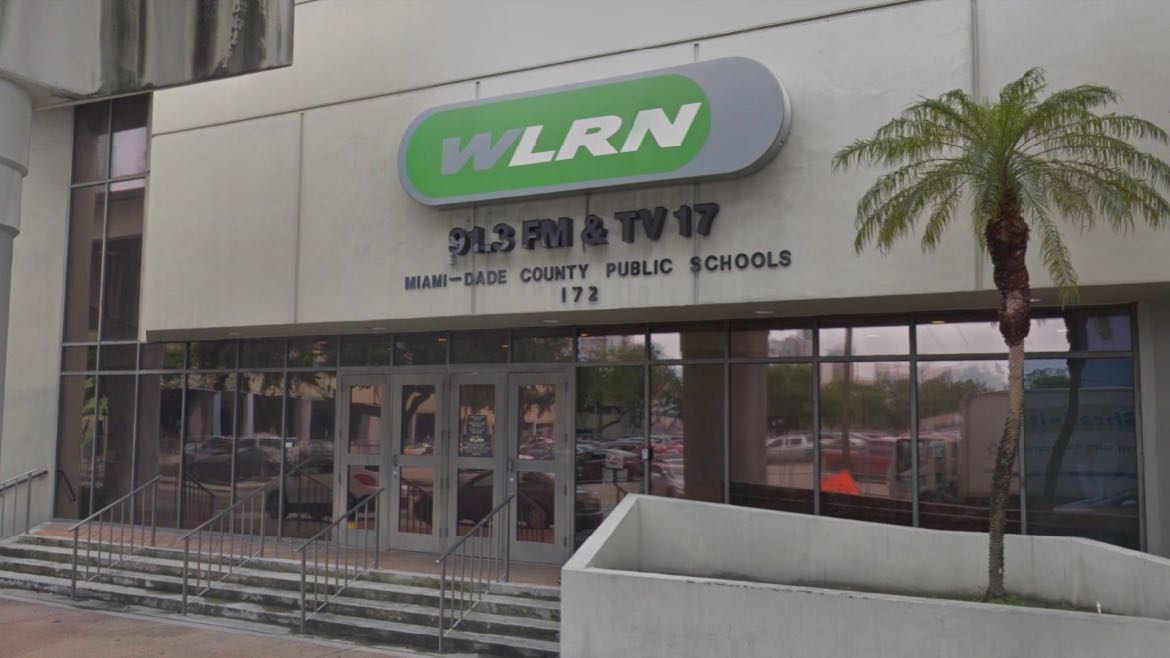WLRN friends group accuses South Florida PBS of violating state law with appeal to members
The friends group of Miami’s WLRN filed a petition Thursday alleging that the station’s school board licensee engaged in an “irrational” and “unlawful” process to find new management for the joint radio and TV operation.
The formal petition from Friends of WLRN contests the bidding process that led to Miami-Dade County Public Schools recommending South Florida PBS to operate WLRN. Friends of WLRN also accused South Florida PBS of having a “poor financial history” and violating a county “cone of silence” law prohibiting public discussion of requests for proposals.
Friends of WLRN demanded that if the school district does not recommend the friends group to manage WLRN or admit to making the wrong decision, it should refer the matter to the state Division of Administrative Hearings for consideration by an administrative law judge.
The school board had scheduled a vote for Dec. 11 on the South Florida PBS recommendation but postponed it indefinitely before Friends of WLRN filed its petition.
A South Florida PBS spokeswoman declined to comment on Friends of WLRN’s petition, citing the cone of silence. A school district spokesperson declined comment for the same reason.
‘Improper’ decision-making
Miami-Dade County Public Schools began reconsidering its relationship with WLRN after a 2017 controversy arose over management of the station. Concerns over costs of managing the station were also a factor.
The school district issued an RFP in June seeking an organization to manage the station while the school board would retain WLRN’s broadcast licenses. Friends of WLRN and South Florida PBS, which operates WXEL in Palm Beach County and WPBT2 in Miami, were the only bidders.
A five-person committee rated the proposals and made a formal recommendation to the school board. The committee included three Miami-Dade County Public School representatives as well as a former Miami Herald publisher and a Florida International University journalism professor.
The committee ranked the bidders numerically in four categories. South Florida PBS, received an average score of 83.80. Friends of WLRN received a 78.40.
In its petition, Friends of WLRN challenged the selection committee’s decision to award the friends group lower scores in the categories of technical qualifications and “Proposer Qualifications including Corporate Past Performance & Key Personnel.” The petition said that basing the recommendation on point values alone is not sufficient.
“It is a well-established principle of American procurement law that where a solicitation provides for the award of a contract based on point scores, such scores are merely a guide or tool to assist with, and not a substitute for, intelligent decision making,” Friends of WLRN said. “Thus, an award based on point scores alone is improper.”
The petition also said that Daisy Gonzalez-Diego, chief communications officer for the school district and a selection committee member, unfairly scored Friends of WLRN. Gonzales-Diego gave the group 20 out of 40 points for technical qualifications and 5 out of 25 points for the proposer qualifications category, which includes corporate past performance.
The petition said Gonzalez-Diego did not properly consider the group’s history of fundraising and running WLRN. A subsidiary of Friends of WLRN employs some WLRN staffers.
Friends of WLRN also alleged that South Florida PBS is in a “precarious” financial situation and is “losing a whole lot of money.” According to audited financial statements, South Florida PBS had a total loss from operations of $8.5 million from fiscal year 2016 to FY2019. Friends of WLRN argues that South Florida PBS’ net assets would have declined $8.8 million since FY16 if the station had not earned $4.1 million in the 2017 spectrum auction and $3 million in property and equipment sales.
“What the Selection Committee may have missed or not properly considered is the reality that operations are losing a lot of money and South Florida PBS is dependent on its endowment or the selling of assets to subsidize significant losses,” the petition said. “Those resources (the endowment), while appearing to be significant right now, can and will be whittled away very quickly if South Florida continues on its existing trajectory.”
Friends of WLRN also argued that the committee failed to consider for its scoring that South Florida PBS asked to receive a management fee for its services while Friends of WLRN did not.
Friends of WLRN’s income exceeded its expenses in its most recent financial statement, but the organization has had to give up CPB grant money for past violations.
‘Cone of silence’
In addition, Friends of WLRN’s formal petition says that South Florida PBS, through its CEO’s address, urged supporters in a Dec. 2 email to tell the school board to award the WLRN contract to South Florida PBS. The state’s “Cone of Silence” law bars potential vendors and the vendor’s representatives from “any communication regarding a particular Request for Proposals (RFP), bid, invitation to bid, or other competitive solicitation.”
Friends of WLRN said South Florida PBS sent the email while the cone of silence was in effect. At least one school board member indicated that he had received messages from a South Florida PBS supporter, the friends group said.
“Such e-mailing and phone calling done in response to the mass e-mail request sent by the CEO South Florida PBS is a violation of the Cone of Silence,” according to the petition. “And, as written in the Board Policy, such a violation is a mandatory (not permissive) disqualification.”
The Friends group said it is entitled to a stay of the contract being awarded while its petition is being considered. Friends of WLRN also said the school district should provide “relief” to the group, “including but not limited to awarding it its reasonable costs and fees incurred in filing and pursuing this matter.”






?Are daily 5 hour broadcasts of BBC programing on
WLRN foreign interference with our elections❓
Is the funding for these broadcasts provided for in NPR’s budget or does NPR provide an uncompensated brokering service for foreigner access to U.S. airways❓